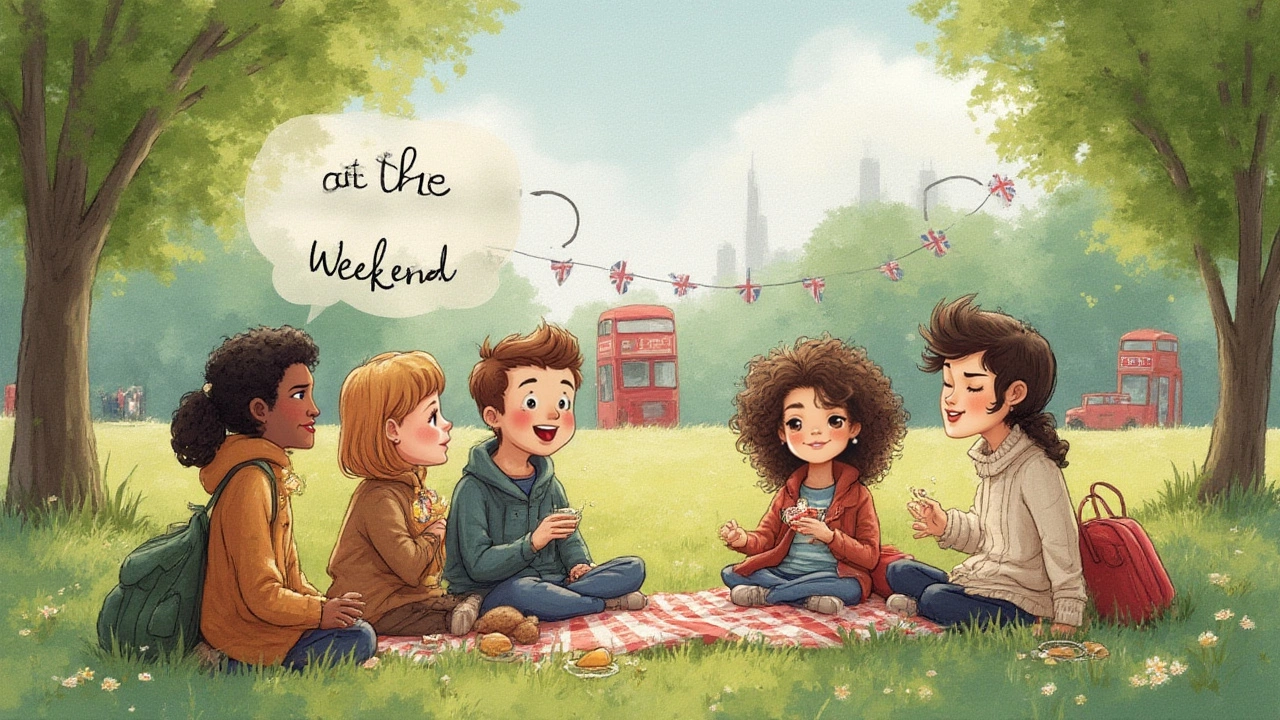British Slang: What It Is and Why It Matters
If you’ve ever watched a UK TV show or chatted with a Londoner, you’ve probably heard words like “cheers” or “mate” that aren’t in a textbook. That’s British slang – the casual, often playful language locals use to sound relaxed and friendly. Knowing a few of these terms can make a trip feel less like a tourist visit and more like you belong. Below we break down the most useful slang, show you where you’ll hear it, and give you quick tips so you don’t sound forced.
Everyday Words You’ll Hear
Mate – a friend or just someone you’re talking to. "Hey mate, fancy a coffee?" works in any region.
Cheeky – something a bit bold but in a fun way. A "cheeky pint" means an unexpected drink, often after work.
Knackered – extremely tired. "I’m knackered after that hike" tells people you need a break.
Gobsmacked – shocked or amazed. If you say, "I was gobsmacked by the fireworks," listeners know you were wowed.
Bloke – a man, often used in a neutral way. "He’s a nice bloke" simply means he’s a nice guy.
Chuffed – pleased or proud. "She was chuffed with her exam results" shows genuine happiness.
These words appear in pubs, on the tube, and in everyday chatter. You’ll hear them mixed with proper English, so don’t worry about sounding odd – Brits use slang all the time.
How to Use British Slang Naturally
First, listen. When you’re in a cafe or watching a British YouTube channel, note which slang pops up and the context. Second, start small. Drop one or two words into a sentence rather than a whole paragraph of slang. For example, instead of saying, "I’m absolutely exhausted," try, "I’m knackered after that walk."
Third, match the vibe. Slang works best in casual settings – friends, pubs, street markets. In a formal meeting, stick to standard English. Fourth, keep tone friendly. Brits love a light‑hearted approach, so a smile or a chuckle helps smooth over any awkwardness.
Finally, don’t over‑think it. If you’re unsure, ask politely: "What does ‘cheeky’ mean here?" Most people enjoy explaining their language and will appreciate your effort.
Using British slang isn’t just about sounding cool; it shows respect for the local culture and makes conversations flow easier. The next time you’re ordering a "cheeky Nando’s" or calling a new friend "mate," you’ll feel more at home.
Ready to try some slang? Pick three words from the list above, use them in a short chat, and see how Brits respond. You’ll be surprised how quickly a few simple terms can bridge the gap between visitor and local.
Categories
Archives
Recent Posts
- Can a Vacation Help With Anxiety? Surprising Benefits & Hidden Pitfalls
- What's the Difference Between PTO and PTA for Weekend Getaways?
- Do All-Inclusive Resorts Really Save You Money?
- Why Is It Called Dirty Myrtle? The Wild Reputation of Myrtle Beach
- Unlocking Last Minute Holiday Deals: Myths and Realities

Menu